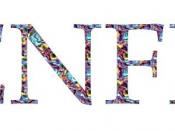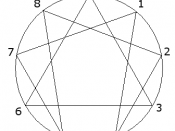Psychology & Nutrition
For Fitness
The Approach
Upon receiving this assignment, there was an overwhelming feeling for me as I thought that I didn't know and understand enough about this subject. Besides that, there was some self doubt that I would be able to pair up with someone and set out a fitness plan for them. Janine and myself were paired up because we both live on the Gold Coast and we thought that this would make things easier for us. When we first arranged a time to meet, we both noticed how busy our lives were and how we didn't seem to have much time that corresponded with each other to meet up. So the first time that we met was after class on the Thursday, which was the week after we were given the assignment.
Discussing a Plan
In this first meeting, I had some questions prepared for Janine to answer; these were targeted at helping me to understand what type of personality she is, what her goals are & how I can help her achieve them.
Janine was also given some homework, which was an Enneagram sheet to work through (This sheet had 108 different types of questions on it). Then Janine & I talked & worked out was that she is an ENFP type personality. I then asked Janine a series of different questions:
Do you have a regular exercise program in place at the moment?
No I haven't, I seem to be very busy at the moment. But I would like to!
When you have exercised in the past, what has been some of the problems that have stopped you?
Having too many goals that are unrealistic.
Irrespective of individual preference.
Not including performance goals, process & enjoyment.
Understanding time commitment in implementing goals.
Failure to create a supportive environment.
Not adjusting realistic goals.
Looking at your goals, could you please tell me about them?
Short-term: Have & maintain a regular exercise regime in three months time.
Intermediate: Have increased capacity for physical activity and durability.
Long-term: Better overall health so I am a living example of my health industry. In 3 years time.
Subjective: Have fun, better attitude and experience of exercise. Up my self-esteem & confidence.
Performance: Gradually increase my capacity to exercise. Exercise at least half an hour 2 times a week.
Process: Report to you (Michael) weekly on my progress or any changes needed.
Reward: Better physical appearance and more energy.
Tell me how you would like to record your goals?
The best way that I could think of that would work for me is to write them on a poster & with every positive step taken; I can add a Gold star.
The types of positive steps that I am talking about are things like when I go & do the exercise and also when I get a lot of enjoyment out of the exercise that I am doing.
Are there any ways that you would like to evaluate your progress on this exercise regime?
I would like to report to you on a weekly basis on what I have achieved & what I haven't.
Personality
After meeting up with Janine and receiving an e-mail on the home work that was given to her (The Enneagram), I started to go over things and work out a bit of an exercise plan for her. The first thing that was looked at was the Enneagram information, it turns out that Janine is a 1 and 7 type person. When some reading was looked up on these two types of personalities, I found out that she is the sort of person that is a Perfectionist and also an Adventurer. Some research was then done on the ENFP type personality.
The Perfectionist: This sort of person is someone that is motivated by the need to live life the right way, improve themselves and others and to avoid anger. They seem to bottle up or control their anger and they believe that they need to stay in control of themselves. Especially when it comes to their angry and gut feelings at all times. They would like to direct these energies in line with the orders from of their extremely developed inner critic (superego), the source of their constrictions on themselves and others.
(How the Enneagram System Works, 1998-2005 The Enneagram Institute)
The Adventurer: This is someone that is motivated by the need to be happy and plan fun things, to contribute to the world, to avoid suffering and pain.
They have concern about their inner world and there are feelings of pain, loss and general concern that they would like to stay away from of as much as possible. To deal with these feelings, these people keep their minds busy with exciting possibilities and options- as long as they are keeping their mind stimulated, they think that they can distract themselves from their fears. This type of person can be found keeping on the go, pursuing one experience after another, and keeping themselves entertained and busy with their many ideas and activities. (How the Enneagram System Works, 1998-2005 The Enneagram Institute)
ENFP: ENFP means Extraverted Intuitive Feeling Perceiving. When I looked up some more information on this type of person I found out that their main part of living is focused externally (which is where they use their intuition to take things in). Their secondary mode is internal (which is where they deal with things depending on how they feel about them) or where it fits in with their own value system.
These types of people are enthusiastic, bright and full of potential. They live in a world of possibilities and can be very excited and passionate about things. By being so enthusiastic, they have the ability to inspire and motivate others. They can talk their way in or out of anything. They love life and see it as a gift and strive to make the most of it.
ENFP's have a strong sense of values which they live with all the way through their lives. Everything that they do must be in line with their values. They need to feel that they are living their lives as their true Self and doing what they believe is right. Emotional thrill is usually an important part of the ENFP's life and their main focus is on keeping "centered".
They need to focus on following through with their projects. Some of these individuals find this as a problem. They need time alone to center themselves and make sure that they are moving in line with their values. If these people remain centered they will usually be quite victorious at their endeavors. (Portrait of an ENFP, 1998-2005 BSM Consulting)
Motivation
After reading about Janine's personality types and going over the information that was gathered from our first interview, I was able to understand more about her and what motivates her. By gathering this information, it gave me some real tools to work with. Some of these are:
She is a person that needs things to be perfect e.g. neat, organised, appearance, structured etc.
She likes things to be fun, joyful & adventurous. Also Janine likes to contribute to tasks that are being done.
Janine is a person that is motivated by being able to motivate her friends and other people around her (work, classmates). She needs to feel that she is living her life to the values that she holds within and to be able to feel these Janine needs to stay centered and focused.
Janine's motivation also comes from being reminded and praised for what she has achieved and to make this an ongoing thing that she can also monitor herself. Include her and use some of the ideas that she has come up with.
Goal Setting
From listening to Janine and reading over the notes that was taken, I have been able to understand the goals that she would like to achieve. The two of us were able to come up with some ideas that were realistic for her to meet and also enjoyable, so that she would get a taste for it and want to go back and do more. This included Yoga and also going for a walk.
The other thing that was asked of Janine was every morning when she awoke, to just sit and center herself for 5 to 10 minutes. The reason for this was so that she could settle her mind and start the day with a relaxed attitude and not just rush into it all stressed and flustered. This way it would work with her personality type, which is to stay centered.
Monitoring
This part was quite easy as we thought that using the poster with the gold stars on it would be a great idea. By using this, it gave Janine a chance to be able to use her creative, organised, neat and structured skills (Perfectionist type); so that she would feel that she is contributing to the task that is being done (Adventurous type). I wanted Janine to be able to look at this chart hanging in her room and to see the gold stars that are appearing on it. This way she would be reminded of her achievements and it would give her a spark to keep on going.
Participation Adhesion
By using some simple techniques like sending Janine a text message saying "how's the exercise going?" will remind her about it & also show her that someone cares. Also by offering to come to yoga or for a walk with her will give her some inspiration to keep going. Janine was also asked to find some other friends that would be interested in a weekly exercise routine. By doing this it will give her something to be able to work on (motivating others).
Evaluation Techniques
On a weekly basis Janine and I aimed meet up or talk on the phone and go over the exercise plan to see how it was going. We talked about the poster & discussed how she was feeling about the whole exercise plan or if she wanted to change anything or add any other ideas that we had.
Conclusion
It was found that by doing this assignment it has opened my awareness to how Counselling and Psychology fit in with Nutrition for Fitness. I feel that I am now able to look at a person on a much bigger scale and take into consideration their personality, cultural beliefs, values and other aspects of their nature, so that I can counsel them to the best of my ability. By doing this it has also helped me understand that there are a number of different reasons why a person won't exercise and it's not just because they are lazy, some of these could include psychological disturbances that are a part of their personality/make up.
References List
How the Enneagram System Works, 1998-2005 The Enneagram Institute. Available from:
http://www.enneagraminstitute.com/intro.asp
[Accessed May 16, 2005]
Portrait of an ENFP, 1998-2005 BSM Consulting, Available from: http://www.personalitypage.com/ENFP.html
[Accessed May 17, 2005]
The Enneagram, class notes.


